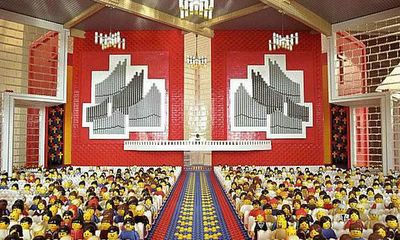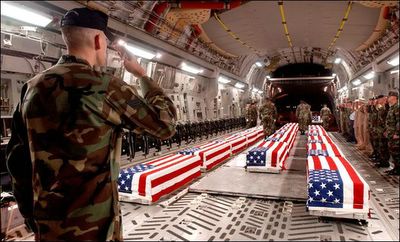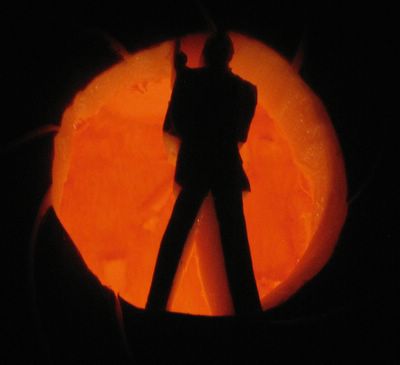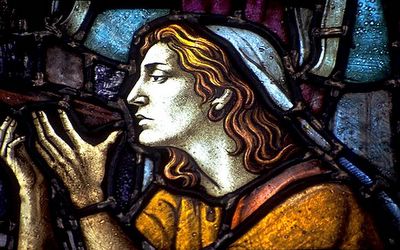 I use the words Pentecostal and Charismatic interchangeably in this blog. I fully realize there are certain qualities that distinguish them from one another, but to the outside world and to most adherents, no one is able to tell the difference. So why should I…
I use the words Pentecostal and Charismatic interchangeably in this blog. I fully realize there are certain qualities that distinguish them from one another, but to the outside world and to most adherents, no one is able to tell the difference. So why should I…
Dodd’s story is my story.
“My Faith So Far” might as well been my memoir. My struggles. My defeats. My victories. Oh sure, some things would change–primarily my Christian secondary education, my lack of drug use, sexual promiscuity and rebellion in high school, etc, but for the most part–from the church, to the college, to the disillusionment, anger and redemption transformed into something far different–that is me.
My family founded Christ for the Nations Institute, one of the country’s largest Charismatic Bible colleges, in 1970. It was the last thing my Great Uncle Gordon did before passing away the year I was born. I once saw a picture of him that encapsulates who he was to me. The photographer is on stage with him, directly to his right. Gordon is leaning forward, casting a wide shadow over the congregation seated below him, enraptured. In his hands he’s holding an old fashioned microphone on a stand—the big, square, clunky, retro kind—and, for a second, he looks like Elvis or some other rock-and-roller. His face is the picture of intensity, his mouth open in mid-sentence. I’ve always loved that picture. After he died, his wife, my Great Aunt Freda took over. The ministry flourished and over 30,000 students have passed through the school’s halls and are now positioned around the world as pastors, teachers, missionaries, and lay leaders.
Sometime in high school, it somehow became the natural assumption in my family that I’d attend CFNI. I’m not quite sure how this occurred. I remember Aunt Freda asking,
“You’re coming to CFNI after you graduate, right?”
“Maybe,” I answered, while on the inside I was muttering, “Not a chance. I’m not going to a Bible college.”
Somewhere along the line, though, I changed my mind. The school’s associate program was two and a half years in length and partly because I thought it would placate my family and partly because I was curious, I decided to do the half portion—a summer session—between my junior and senior years of high school. To my surprise, it was a very moving, enjoyable and, of course, liberating summer. I decided that I would indeed attend the school. After all, it was only two years. And a good spiritual foundation before heading off to get my degree would be a smart move, I felt.
It wasn’t easy being the Great Nephew of the school’s founder. People are in wonder and awe. They imagined my life in the shadow of a great saint. Truth is, of course, I’d never even met him. Try as I might to keep it quiet, people still found out. Some thought I must be closer to God. Others didn’t care. Still others assumed I’d naturally be an ass and decided right then and there to dislike me. (It’s an odd experience to have someone ask your forgiveness for disliking you when you’ve never even met them.)
Additionally, it’s very hard to get away with things when everyone has their eye on you. How’s a guy supposed to be able to break the rules when everyone is watching him? Though they claim we have a new liberty in Christ, Charismatics have about as many rules as the orthodox Jews. And CFNI, it seemed, loved to adopt them all: no R-rated movies, no drinking, no dancing, no smoking, no guys in girl’s rooms and no girls in guy’s rooms, no romantic touching between sexes, no walking on the grass, no TVs, no non-Christian music, no staying out after 11pm (curfew strictly enforced), no provocative clothing (men must wear dress slacks and collared shirts and women must wear dresses), no faddish haircuts (one student, now a well-known Christian musician, was kicked out because he was unwilling to cut his hair), no skipping class... You get the idea.
It was as if the quality of your spiritual life was measured by your ability to keep the law. This wasn’t their intention of course, when they were written. With such a disparate group of students, some sort of standard was needed by which to keep the school above repute. But rules, especially when you have a lot of them, tend to take on lives of their own. And pretty soon, it was not the unfathomable and unplumbable depth of your heart that was used to judge your walk with God (as if such a thing were necessary and appropriate in the first place), but the very observable and verifiable adherence to school rules.
Funny then, that I think I broke nearly every one. I was too much of a movie buff to ignore two year’s worth of great films, my drawers were filled with all kinds of secular music, I walked on the grass just for spite, and my roommates and I had a TV hidden inside a set of drawers with false backs. That is until one of my roomates got convicted and turned us in.
The classes were like those at any college. Some you cannot wait to get to, some you cannot wait to get out of. The Bible was taught with a decidedly Charismatic perspective. Every subject was first filtered through the prism of Pentecostal tradition, oftentimes brushing past or completely ignoring traditional orthodoxy for the “enlightened” perspective of a movement barely a hundred years old. Never intending to go into the ministry (a fact which made me an odd duck on campus), I ignored hermeneutics and stuck to such classes as Biblical history, Christian ethics and in-depth examination of assorted books of the Bible. I avoided such classes as Healing, Deliverance, and Creation Science like the plague.
In addition to the classes, we had weekly speakers. Some were dreadfully dull while others were extraordinarily first-rate. Some brought messages that kindled holy fire in our hearts, while others—too many others—spent each session talking about how we can have whatever we set our faith on—money, houses, cars, you name it. They spoke at the Sunday service (conducted in the afternoon so that it wouldn’t interfere with church, also mandatory), the weekday 11 o’clock session, and a Wednesday evening session.
I remember one particular preacher who came one week, ripe for mockery. My friends and I wasted no time. He would strut about the stage, screaming and yelling and if we didn’t respond to him with enough “amens” or whatevers, he’d stop and look at us and say in his distinctive Southern drawl, “Now, I know what you’re all thinking. You’re thinking, ‘That’s good preachin’ brother Terry.’ I know it! I KNOW IT!” He would do this all week long. For months afterwards, anytime my friends and I wanted to get a particular point across to one another, this became our mantra. “Now I know what you’re thinking Chris. You’re thinking ‘that’s good drivin’ brother Brandon! I know it. I KNOW IT!” We also remembered this particular speaker—though I do not remember his name—because of his daughter who sat with him on stage during one of the chapel sessions. She was an incredibly beautiful woman. She was also one of the most unhappy-looking human beings we’d ever laid eyes on. “What has life with this man been like for you,” I’d wonder and imagine what it would be like to valiantly rescue her from her life with her pompous, overbearing, egotistical father.
It wasn’t long before I begin to see some cracks with my chosen place of education and enlightenment. They were the sort of cracks you try to ignore at first, preferring to chalk up any sort of imperfection as a lack of understanding on your own part. But the more it happened, the harder it was to ignore, the harder it was to make excuses for. The problems started small at first, or at least the aperture of my perspective began small. Soon, the problems were all I could see and they were preventing me from receiving some very real ministry.
I would rarely enter in like so many of my fellow students, wondering what I was doing wrong, why God was ignoring me, why they didn’t see the red flags I saw or, if they did, why it didn’t bother them.
One staff member commented during a service that being at CFNI was like being under a Holy Spirit spicket and how he wished it were possible to stay there forever under that blessed downpour. I remember thinking that such a desire was absurd. What good did that do the world? To live in a bubble of spiritual bliss day in and day out may make you feel good but it hardly improves the world in which you live or the lives of the hurting people around you.
CFNI was a monolithic bubble, within which a very different world existed. Shut off and isolated from society, existence there became a place where basking in the glow of God was the number one pursuit. Sometimes I thought my fellow classmates were like zombies and soon I’d need to run down the aisles, forcefully slapping them across the face, shouting, “Wake up!” and they’d shake their heads and the glaze would disappear from their eyes and they’d say, “Thanks, I needed that. Now then, let’s get the hell outta here!”
One evening some friends had me and others from the yearbook staff where I worked as the Assistant Editor over for dinner and a movie. After a fantastic meal of I-don’t-remember-what (but Becki cooked it so it must have been fantastic) we all situated ourselves around the living room and began to watch
Dances with Wolves. (TVs were allowed in family housing, just not in the single’s dorms). Midway though the film, at a particularly dramatic scene, one of my fellow students blurted out, “How cool would it be if Capt. John Dunbar was a Christian and he was bringing the wonderful news of the Gospel to the Indians?!”
I remember my response. It wasn’t very spiritual. I told him to shut up.
Most students preferred to skip breakfast and get as much sleep as they could. Those who did eat usually hobbled into the cafeteria just as they were about to shut the doors, hair askew, bleary-eyed and catatonic. One particular morning a guy sat down next to me in the nearly empty cafeteria and we struck up a polite but limited conversation. I can’t remember how the conversation started, but somehow it turned to one of my favorite subjects—
Star Trek. I recall saying something about the TV show—probably something as innocuous as the fact that it happened to be on that particular evening and I was looking forward to going over to Becki’s to catch it—when my table-mate paused, his fork hovering in midair, a speared sausage caught in limbo. He seemed to stare off into the distance and with a glazed look in his eyes, turned to me and in all seriousness, said, “Wouldn’t it be fantastic…” (at this point the sausage was making wide arcs in the air) “…if the Starship Enterprise was a missionary vessel, bringing God’s love to the farthest, most remote corners of the Galaxy!”
I remember my response. It wasn’t very spiritual. I told him to shut up.
One day I got a call from my great Aunt. She asked me if I’d like to join her at a Benny Hinn crusade that evening. I had no idea who Benny Hinn was, so I agreed. (How I had grown up Pentecostal and even been at that school for as long as I had without knowing his name, I’ll never know). She picked me up shortly after dinner and we drove through downtown Dallas to the enormous convention center. Once parked, we made our way through the backstage entrance, since she was going to be speaking for a few minutes at the opening of the service. I mingled around backstage, watching the sort of action no one else ever sees. At one point a man sporting a spectacularly odd suit and haircut came up to me and struck up a conversation. His accent was hard to place. Middle-eastern perhaps, with something else thrown in. We chatted for a few moments, but soon he had to excuse himself and I exited the backstage to find my seat.
The auditorium was colossal and there were more people packed into it than I thought physically possible. I settled into my assigned seat and it wasn’t long before the lights died down and spotlights began whipping across the crowd. In the center of the stage, a thick fog rolled in, made thicker by the luminous beams. What the…? Suddenly, a man emerged from the haze and began singing “How Great Thou Art.” Oh, I knew this man. He was the one I had spoken to back stage. So he must have been the worship leader. However, as the service went on and the music ended and this man was still on stage, speaking, it hit me–that man wasn’t the worship leader, it was Hinn himself.
It wasn’t long before he began calling people up to the stage for healing. Some would come up in wheelchairs and bound off the stage like acrobats. Others he’d declare healed and they’d limp back the same way they came. When he was through making a mockery of one of Christ’s most beautiful miracles, he turned to the rest of us and declared that the Holy Ghost was with him and he was about to shower us all.
“Yes,” he said, we were “all going to fall under the power of my anointing and be slain in the spirit. Link arms,” he commanded, “and watch what God can do.”
Link arms! Could this guy be any more obvious? Was this a dress rehearsal for
Leap of Faith, Part II!? Where was Steve Martin hiding? As my neighbors linked their arms with mine, I decided then and there that I was not going down. I looked to my left. I looked to my right. You guys aren’t going down either, I told my neighbors with my mind. We are not doing the whims of this charlatan.
“NOW!,” Hinn screamed and looked as it he was trying to throw fireballs from his hands into the crowd. For some reason, as I remember it, the domino effect began from the edges of the auditorium and worked its way inward. Everywhere people began falling, dragging their neighbors down with them. As the human tidal wave rippled towards me, I planted my feet and locked my arms. I never did go down. Neither did the guys to my right or left.
I can’t remember what I told my Aunt later that evening as we drove home. I’m sure I lied. I probably told her something nice and innocuous. I shudder to think what I would have said had such an incident occured today. All I know is, if I’d come in my own car that evening, I would have walked out of that circus tent in the first few minutes. (Not everyone bought into the televangelist thing. A few doors down from mine, a Canadian friend had a dart board on his wall—televangelist Robert Tilton with the eyes repeatedly gouged out.)
I once made a comment to a friend as we came out of the film,
Shadowlands (not rated R!), that, “there is more to life than God.” I said it then because it was the sort of film that our fellow students would have left analyzing in the face of a half-dozen Bible verses on death and dying and providence instead of simply feeling and wrestling with the pain. I didn’t mean by it that God was not present in everything in our lives, but that, in an odd sort of logic, we keep him so small in the face of our largest challenges. Standing before things which overwhelm our emotions (like the death of a wife and mother as depicted in the movie) we resort to trite cliché’s about God’s control and all things working out for good and infinite purposes we cannot see. And these things are all true. But when we reduce our reactions to things we cannot comprehend to the theological equivalent of pithy bumper stickers, then we are propping ourselves up, not with God, but with our own limited, myopic and extremely one-sided views of Him.
I wonder why I didn’t leave. Did I stay just so I could say I wasn’t a quitter? Did I stay because I was too afraid to rock the boat? Did I stay because, deep down, I hoped I was wrong? Probably a bit of all three.
If it seems that I’m attacking the extremists among my fellow students and faculty and making a disproportionate case, then, to some degree, there is probably some truth to that. The person who yells the loudest and stands up the tallest is usually the one that gets shot at first. And yet, while there are certainly more grounded, stable, and reserved Pentecostal and Charismatic Christians (I know and adore many), they, more often than not, are just as guilty as the extremists in many areas. At best, they are guilty for letting the extremism continue. By not confronting the Benny Hinns of the movement, Charismatics either show that they approve of his and others’ actions, or, they are impotent to stop them. Either way, non-believers and believers alike look at them and see only ridiculous circus clowns.
I could no longer get behind the spiritual family in which I had been weaned and nurtured. The issues I had with Charismaticisim in general were magnified ten-fold at the school.
I could no longer endorse a theology that looked to experience as its source for truth instead of the Bible. I could no longer abide a Christianity that mistrusted intellect and elevated emotion to the ultimate standard bearer of pragmatism. I could no longer support a system that looked at incontrovertible prophecy as divine revelation equal to Scripture. Does Scripture contain all the revelation that you and I need? Is Scripture alone sufficient? Put another way, is the Bible the complete Word of God? If God is still giving revelation, such as in, “God told me...” then the Bible is, in fact, not complete.
I could no longer sanction a belief system so narcissistic and introverted as to, at best, allow and at worst, condone a “name it and claim it” gospel that cared more for the size of church coffers than caring for the spiritual and physical needy among us. I could no longer approve of a high-jacked version of my faith that saw speaking in tongues—a topic already wildly taken out of context—as a means of hyper-salvation. And I could not back a spiritual philosophy that ignored historical precedent for end-times myopia, preferred sensationalism to authenticity and saw spiritual warfare as a board game of
Risk.
It was time to begin looking elseware for spiritual nourishment.
Recently, CFNI contacted me to ask if I’d be willing to write an occasional column for the Alumni publication, focusing on how the college changed my life. I told the alumni coordinator who called that I would be happy to, though she would probably first want to hear about some of the changes in my life recently. She insisted it wouldn’t be a problem and she looked forward to whatever I wrote. I sent her an article, which, among other things, questioned a certain number of the school’s sacred cows. I never heard from her again.
to be continued...











